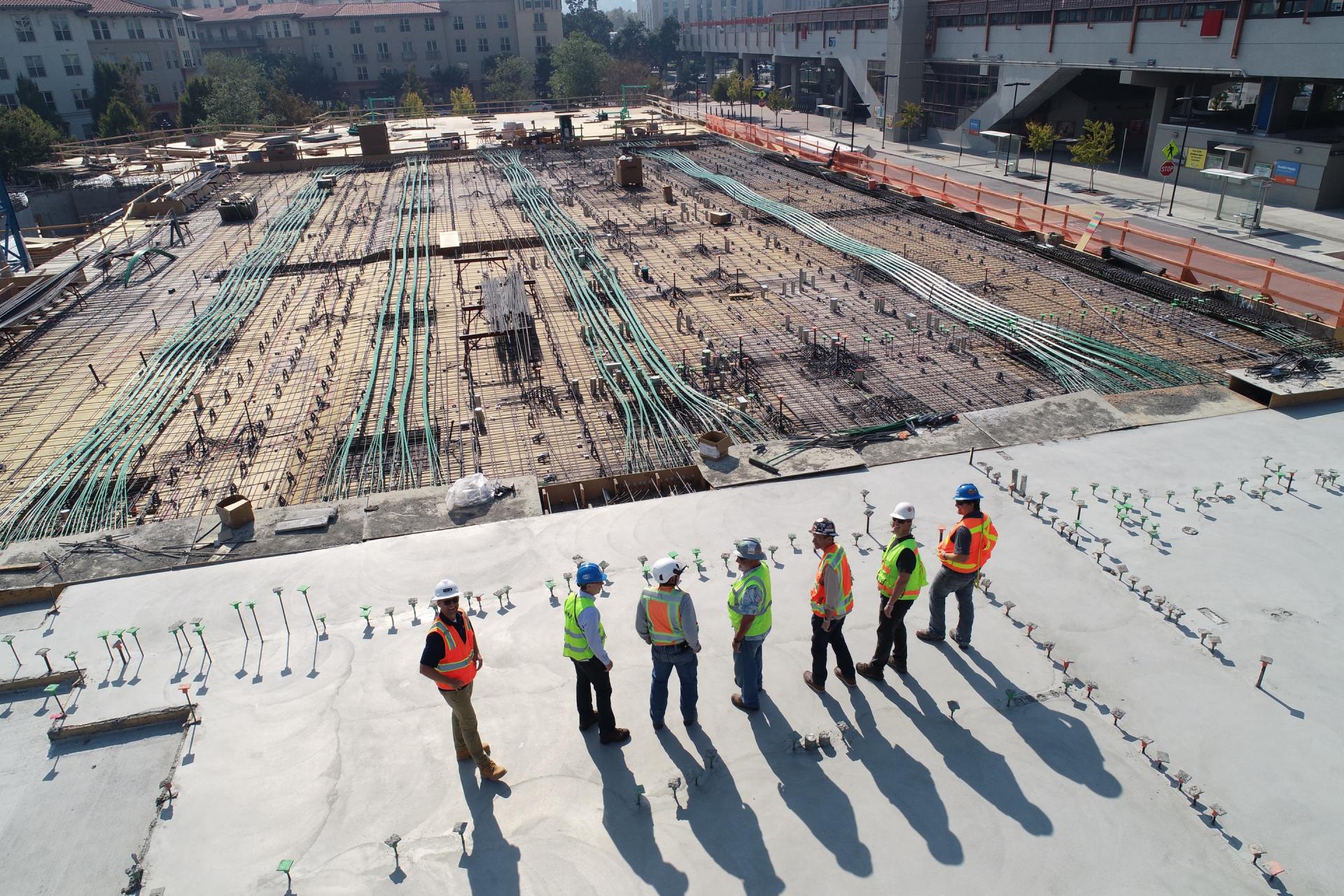Impact of mediation on housing and property cases

Housing and property disputes take many forms including disagreements between landlords and tenants, between neighbours and between property owners and public agencies. Between January and June 2018, in the county courts, there were approximately 8,953 mortgage possession claims and 61,280 landlord possession claims at all stages of proceedings (of which 37,526 were social landlord claims, 12,023 were accelerated claims and 11,731 were private landlord claims). Median average time from mortgage claim to repossession between January 2018 and June 2018 was approximately 44 weeks. Over the past two years, the median has varied within a range of 34 to 81 weeks. The median average time for landlord possession claims to reach each stage varied depending on tenure type, but the overall median time from claim to landlord repossession was approximately 20 weeks between January and June 2018. [1]
Bringing and defending a housing claim can be an expensive process with long delays not helping to deal with the often complex relationships between the parties. Delay is therefore clearly a relevant factor, especially in cases concerned with serious rent arrears, neglected properties and those involved in anti-social behaviour. A landlord in the private sector with a mortgage to pay, in receipt of nothing from their tenant, may well feel frustration that after waiting 2 months after serving a section 21 Housing Act 1988 notice, there is further delay before they obtain a possession order and then again before enforcement by bailiffs. Disrepair cases continue to be issued either as standalone claims or defences to possession proceedings. The Homes (Fitness for Human Habitation and Liability for Housing Standards) Bill will increase tenant’s rights to demand homes fit for human habitation.
Even leaving aside the legal fees, those without fee remission, have to pay a court fee of around £355 and a hearing fee. In addition to housing disputes processed in the county court, there are cases in the Magistrates’ court and in the property chamber of the First Tier Tribunal. Different procedures apply in each forum.
Quick, effective and inexpensive relief is what is sought by those in dispute. Neither the tenant living with no heating or suffering from water ingress or a landlord with other financial obligations, waiting for rent to be paid, necessarily wants a formal trial in court.
Mediation and the housing court
The government has announced an intention to consult about the establishment of a dedicated housing court. This would deal with residential possession matters, tenancy deposit disputes, repairing obligations between landlord and tenants, harassment and eviction claims, injunctions for access and EPA 1990 claims currently dealt with by Magistrates courts. The Residential Landlords Association consider that it should be based on the FTT model. “The advantages of this would include: capitalising on the large number of cases decided on paper by the tribunal, making the process easier to access; using the mediation and enhanced alternative dispute resolution procedures the tribunal operates; enabling the use of the tribunal’s in-house surveyors and inspectors and thereby saving costs; and being able to integrate with and take full advantage of the new online court, so the majority of records could be dealt with online. The more informal operation of the tribunal should make it less daunting for tenants and landlords. The tribunal currently holds hearings in local public buildings, making it physically easier to access. The tribunal tends not to award legal costs where there would be advantages if the current cost-limited model were retained.” (Lord Flight, 20 June 2018 at 4.47pm, Courts and Tribunals (Judiciary and Functions of Staff Bill), second reading in the House of Lords).
ADR is not a substitute system but a complementary one, helping the parties consider the best alternative or worst alternative to negotiated settlement. “ADR (particular mediation) has a vital role to play in reducing the costs of civil disputes, by fomenting the early settlement of cases…Mediation can bring about earlier resolution in cases which are destined to settle and can, on occasions, identify common ground which conventional negotiation does not reach.” (LJ Jackson) Mediation can offer the parties greater control and flexibility to reach a mutually acceptable settlement involving compromise by both parties. In my opinion, mediation would complement a housing court, giving individuals, many of whom are likely to have ongoing relationships, after the court case, with a chance to discuss the conflict between them without the constraints caused by the rule of law and the court process.
Compulsory mediation?
Should mediation be compulsory in housing and property disputes? So that whilst parties remain free not to settle their disputes, the civil justice system requires them to attempt to settle. If so, at what stage is this legitimate? The Civil Justice Council ADR Working Group published their interim report in October 2017 on “ADR and Civil Justice.” They concluded that ADR has not become an integral part of the civil justice system and that it needs to become more culturally normal. They recommended the promotion of ADR more actively at and around the allocation and directions stages. The Working Party considered whether ADR should be made compulsory as a pre-condition of access to the courts, at some later stage such as the CMC hearing or at the specific request of the court in the cause of case management. The Working Party considered the factors for and against compulsory mediation at section 8 of their report. There was concern that compulsory mediation as a pre-condition to commencing proceedings would be an unnecessary burden in undisputed and undefended matters. The concern about compulsory mediation at the CMC stage is that it may not resolve cases in which the parties are reluctant to mediate or have already tried and failed to mediate. The concern about compulsory mediation in individual cases is that it may reduce that parties’ access to the courts by insisting that they attend mediation against their will. These concerns are valid in the field of housing and property and until clear evidence that compulsory mediation results in more settlements or longer lasting solutions, it should remain a voluntary process.
There are also potential problems with the conduct of mediation amongst parties having unequal power relations. If one party is considerably more powerful than the other, they may not have sufficient incentives to compromise. Without knowing the extent to which mediation can successfully occur amongst parties with differing powers, it is not clear that compulsory mediation will reduce the number of cases going to trial. An incentive to remedy a problem might be provided to those with a concern about reputational damage or the publicity of cases, if they got to court or the Ombudsman.
Another issue with compulsory mediation is whether and how it would work where there are a number of tenants affected by a particular matter. Mediation may be ineffective for large scale cases.
Digital access to the court and ODR techniques?
HMCTS is undergoing a six year £1bn reform programme which includes greater provision of online services. Since March 2018, HMCTS have been piloting the use of fully video hearings in the tax tribunal. Digital access to the court has the potential to make case management and other hearings more accessible. Assisted Digital support services for those less confident using online services are also being considered. It is easy to see how, once parties are increasingly using digital services, there will be greater use of online dispute resolution techniques by those with housing and property disputes to resolve issues. A number of county courts have closed down meaning that the nearest court is often a distance from the parties. This can have a particular impact on those on low income. ODR can offer ADR to those engaged in low value disputes or those who became of distance or time constraints would not be interested in a face to face mediation. Digital access to the court and to mediation, may enable more people to participate provided they have access to a computer, tablet or mobile phone. Another exciting opportunity for mediation in low value housing and property disputes would be the Online Solutions Court with its formal incorporation of ADR. If introduced, this will also provide a valuable opportunity to assist litigants in persons and those dealing with small claims to resolve disputes.
Mediation enables parties to reach mutually satisfactory solutions to disputes, whether through traditional face-to-face mediation or through online dispute resolution, in a manner not available at trial. In many of housing and property disputes, parties have an ongoing relationship and mediation can offer one way of finding a solution that reduces the likelihood of repeated litigation. Mediation will in my opinion benefit parties engaged in housing and property disputes and should be promoted around the direction and directions stages. ODR should play a vital role in the process of ensuring greater digital access to the courts and in any housing court.
















